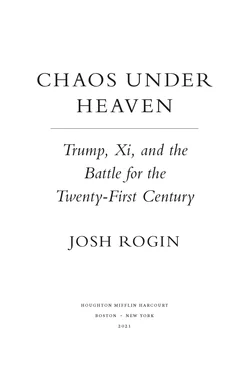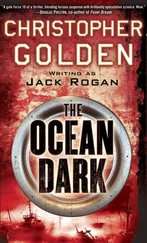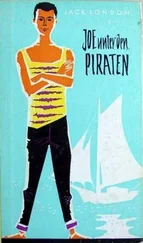The leak of Kushner’s meeting with Wu Xiaohui, the chairman of Anbang, at the Waldorf Astoria hotel (which Anbang owns) on November 16 was so specific it had to have come from someone at the dinner. Even the $2,100 bottles of Château Lafite Rothschild got mentioned. The Kushner companies explained that the deal had been in the works for months before the election. Regardless, due to the clear conflict of interest after the election, the negotiations were scuttled.
Kushner did not suffer nearly as much as his would-be business partner, however. Chinese authorities would arrest Wu four months after the story broke; he subsequently was sentenced to eighteen years in prison for corruption. Whatever factional fighting there was in Trump world paled in comparison to what must have been going on inside the CCP system at the time. Perhaps Wu’s outreach to Kushner was seen as a power play and therefore a threat to the leadership in Beijing, so he was purged. Perhaps he was punished for the fact that the scheme failed so publicly. It’s impossible to know.
But what is certain is that, for a time, Kushner and his conciliatory views toward China seemed to have won out. After Trump’s inauguration on January 20, 2017, Kushner was the official who had the direct line to Beijing, so he had the most influence. He was listening to Henry Kissinger, Mnuchin, Cohn, and the billionaires, all of whom steered him toward a friendly relationship managed at the very top of both governments. That was the way to get the deal Trump wanted, they assured him.
To that end, Kushner’s main objective was to organize a summit between Trump and Xi at Mar-a-Lago. The summit, he felt, was crucial for the two leaders to forge a personal bond and set the bilateral relationship on a steady and stable course. If Kushner’s father-in-law wanted a deal with China, this seemed like a necessary first step.
But Xi refused to even speak with Trump over the phone until the American president fixed the problem he had caused with his Taiwan call. “The Chinese began to punish the Trump administration for that phone call and would not actually have a summit anywhere until the president clarified his views,” Pillsbury would recall several years later. “But the way he did that set the tone for the next three years.”
After Dark
Xi wanted to come to Mar-a-Lago and cement his relationship with Trump. But he couldn’t lose face. The Taiwan call had to be walked back. Otherwise, Xi would be seen as conceding on a core issue for China right off the bat.
Trump wanted the problem with Xi fixed as well. He had never intended to offend Xi with the call. Trump saw the two countries as two giant corporations and Xi as his opposing CEO. You need a good relationship with the other CEO to have productive negotiations, at least at the start. Trump also looked up to strongman rulers like Xi: he was jealous of Xi’s power but at the same time sought Xi’s validation. But most of all, for Trump, a close personal relationship with Xi was the prerequisite for getting what he wanted—a deal.
So Kushner, working with the Chinese ambassador, devised a plan to break the impasse. On the evening of Thursday, February 9, after most White House staff had gone home, Kushner called Bannon and Secretary of State Rex Tillerson to the president’s residence. There, Trump took a phone call from Xi. And, as Kushner had arranged, his father-in-law promised Xi directly that he would accept no more phone calls from the leader of Taiwan.
In the official White House statement about the call, Pottinger secured a small but largely symbolic victory. The original draft had stated that Trump would commit to honoring “the one China policy.” But Pottinger made sure the statement read, “President Trump agreed, at the request of President Xi, to honor our one China policy” (emphasis added). That edit maintained America’s historical position of ambiguity as to whether the United States agrees with Beijing on its claims regarding what it considers a renegade province.
Regardless, the call showed that Trump had conceded Xi’s main point: that the Taiwan call was wrong and would never happen again. “That removed the obstacle for the Mar-a-Lago summit,” Pillsbury said. Kushner had delivered the meeting that Trump had sought, putting the president’s son-in-law firmly in the driver’s seat of US-China policy.
Not everyone was pleased about this outcome. Bannon, for instance, was livid. He saw the call as a naïve concession by Kushner and a misstep by Trump. “Why did we take the phone call from Xi? We had all the leverage. Xi was dying to go to Mar-a-Lago,” Bannon told me later. “They got to Kushner. This is Kushner who drove that. Since that time, Trump doesn’t want to hear about Taiwan.”
After these two phone calls, Trump’s attitude toward Taiwan would vacillate between indifference and disrespect, and would continue in that vein throughout his presidency. Because everybody in the administration was aware of the president’s opinion, the Trump administration—despite being full of pro-Taiwan hawks at the bureaucratic level—avoided almost all public displays of sympathy or support for the island for the first three years. What minor increases in support the United States did muster were done largely without public fanfare and sometimes even without Trump’s knowledge. For instance, despite the fact that Mattis chose Randy Schriver—a pro-Taiwan hardliner—to be the top Pentagon policy official for Asia, it took over two years to push through sales of new F-16 fighter jets to the island. The Pentagon didn’t send any generals or admirals to visit Taipei for public events, which would have been a relatively benign move. For the first year, no senior Trump administration officials visited Taiwan at all.
When Trump officials did visit Taiwan and Beijing complained, Trump took China’s side. In March 2018, a deputy assistant secretary of state named Alex Wong would visit Taipei, meet with senior Taiwanese officials, and give a speech praising Taiwan’s democracy as an example for the entire region. Wong had been the foreign policy staffer for Senator Tom Cotton (R-AR) and had worked on Mitt Romney’s 2012 presidential campaign before that. “The United States has been, is, and always will be Taiwan’s closest friend and partner,” he said during his trip to Taipei.
The Chinese government protested to the White House. When Trump was informed that Beijing was angry about the remarks of Wong in Taipei, he was furious.
“Who the fuck is Alex Wong?” he screamed, according to a person in the room. “And why didn’t anybody tell me he was going to Taiwan? Get him out of there!”
Wong wasn’t fired, but the rest of the administration got the message—one that, in the months and years to follow, would become clear to Taiwan’s government, as well. In early 2019, when the American Institute in Taiwan was preparing a reception to celebrate the fortieth anniversary of the Taiwan Relations Act, there was an internal administration discussion about sending a cabinet-level official to attend. No senior cabinet member wanted to go, so Veterans Affairs Secretary David Shulkin was given the assignment. But a month before the ceremony, Trump fired Shulkin after it was revealed that he had been taking his wife on European shopping and sightseeing trips under the cover of official US government business. When Taiwanese president Tsai Ing-wen arrived at the reception, the highest-level US guests were an assistant secretary of state and former House Speaker Paul Ryan. There were no senior Trump officials in the room.
A Special Relationship
Trump’s February 2017 phone call with Xi marked the beginning of a dynamic between the two leaders, one that would shape US-China engagement significantly over the next three years. Xi learned that if he really wanted Trump to do something, all he had to do was ask him for a personal favor. Xi called on these favors liberally, using them to keep Trump out of several issues China deemed sensitive and playing Trump against his own government.
Читать дальше











